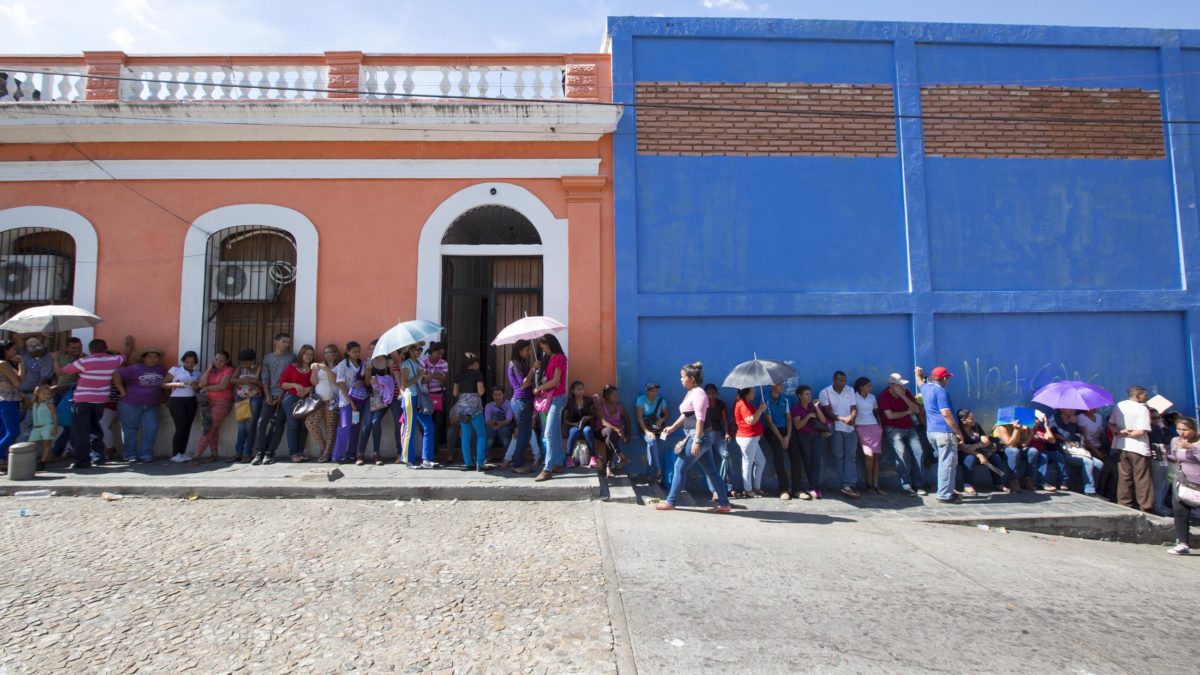For Venezuela’s Zika Woes, Some Tylenol
With more than 57,000 suspected cases of Zika, Venezuela is witnessing an epidemic eclipsed only by Brazil’s 196,976 and Colombia’s 95,412 cases, according to Pan American Health Organization figures as of October 6. But with its economy in a free-fall, hospitals in Venezuela are dangerously understaffed, scientific research is going vastly underfunded, and medical supplies are stretched thin, leaving the nation uniquely ill-prepared to stem the viral epidemic.

As Zika takes hold, Venezuelans are facing long lines and shortages for everything from groceries to medications. Pfizer has stepped in, but much more is needed.
Visual: iStock.com
In response, the pharmaceutical giant Pfizer recently announced that it had donated 159,200 doses of acetaminophen to be doled out across 42 clinics in seven Venezuelan states. The medication, donated as part of an initiative called “Community Without Zika Virus” – a collaboration between Pfizer’s Venezuelan arm, the Institute of Tropical Medicine at the Central University of Venezuela (UCV) in Caracas, and several health foundations – is meant to treat the flu-like symptoms of Zika infection. But critics suggest that while any help is welcome, the donation is tragically incommensurate with the problem at hand, and they continue to call on the Venezuelan government to do more to address a fast-growing crisis.
“It’s a little bandage to try and stop a hemorrhage,” Alberto Fernandez, a UCV professor, said of the Pfizer donation in an email message to Undark. Since April, Venezuela has seen more than 60 women give birth to children with brain defects associated with Zika. Cases of Guillain-Barré syndrome – a neurological condition linked to Zika – are also growing in Venezuela.
Pfizer declined to speak on the record about the initiative, but pointed Undark to a July press release, which listed five foundations and a municipal council as beneficiaries of the donations. It’s unclear what these entities had asked of the pharmaceutical company (we’ll update this post when we hear back from them), though Pfizer maintains that its donations are helping. “Pfizer Venezuela’s corporate social responsibility projects have a clear purpose,” said Pfizer Venezuela spokeswoman Ana Maria Luque, in a statement widely circulated last month by Venezuelan news sources, “to contribute permanently to the health of Venezuelans and to educate patients on disease prevention.”
Of course, in a country where medical supplies are scant, there is real demand for painkillers for patients suffering with viral infections like Zika, dengue or chikungunya. “Certainly the donation is too small of a help, but it’s well received,” said Audy Salcedo, a professor of statistics at UCV.
Some estimates suggest that the supply of medications in the country has dropped 85 percent over the last six months, and Venezuela has a history of running short on acetaminophen. Last year, thanks in part to a factory strike and a shortage of raw materials, Pfizer Venezuela’s production of Atamel, its version of acetaminophen, dropped precipitously. The construction of four additional production facilities was planned, but never got off the ground.
Since then, Venezuela has continued to fall deeper into an economic crisis and the shortage of acetaminophen has led some to seek out alternative treatments based in little or no science, says Felix Moronta, a Venezuelan biologist. And while Pfizer’s donation is a small gesture that other pharmaceutical companies should emulate, Moronta said, it won’t solve the underlying problem.
“The majority will continue their odysseys to obtain the medication,” Moronta said, “while this will alleviate the pain of a few.”











Comments are automatically closed one year after article publication. Archived comments are below.
WTF?! Acetomycin that liver killer donated to fight the zitka epidemic? Does anyone else think that this is useless and, at the best interpretation nuts? I’m astonished at the cynicism.
jw